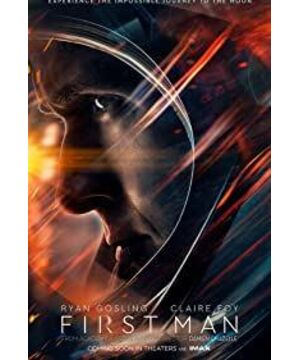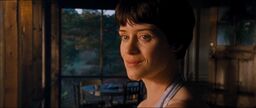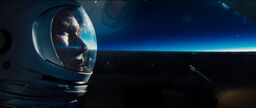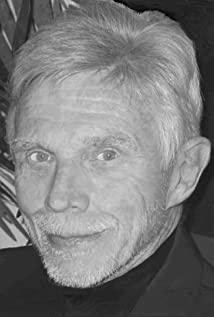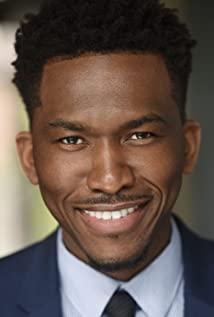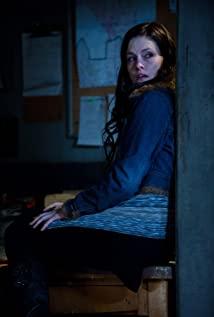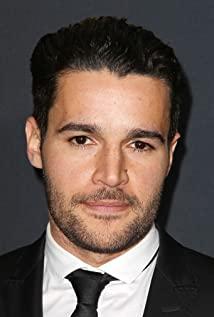As a diehard fan of "La La Land", I have been looking forward to the North American set date of "First Man on the Moon" since last September. In February of this year, the American city I went to has no schedule, so I watched the DVD version on the TV screen first, and the impression was mediocre. 4 days ago, at the Shanghai Film Festival's second screening of the Oriental giant screen version, tears welled up in my eyes.
Why can't Mia and Seba be together? Why go to the moon? Why do you want to shoot "Boom Drummer", "La La Land" and "First Man on the Moon"?
This chain of questions can share answers.
Chazelle, who was born in 1985, is my peer. This objective fact is hard to come by. To be able to witness the trajectory of a talented director's work with a completely synchronized rhythm requires the right time, place and people. I usually do too much good things.
Chazelle's works are highly intertwined with himself, and are highly authoritative. This fusion is not only reflected in the communication of values, but also in the detailed pictures and lines. Careful observation, we can directly see his personal likes and dislikes and brain circuits from the movie, all kinds of protagonists are just his representatives to some extent. At this point, he is terrifying, with a tyrannical dictatorship and conceit, and a muted influence. Fortunately, his three views are very positive, his mind is full of philosophical speculation, and his heart is full of French romance. Love and dreams are the core topics he is keen to discuss.
Now, we can go back to the question above.
Why isn't "La La Land" a lover who ends up getting married? ——The dream held by both parties is the source of the relationship, and love inspires the realization of the dream, but the realization of the two people's dreams is in conflict with each other, the bird and the fish, let the fish leave the water? Get the bird out of the sky? In order to protect each other's dreams and the foundation of their relationship, they must separate. It's true that it's abusive, but it's the only solution.
Why go to the moon? ——Armstrong at first only wanted to use his work as a distraction, but after taking the first step, his personal destiny was closely linked to his national responsibility. From a small point of view, in order to protect the life value of the deceased comrades-in-arms, to a large degree, in order to protect the future strategic position of the country, we must succeed. The subtle thing is that at first it was his little love for the family that triggered the start of Feitian's career, but later he had to sacrifice his family because of the moon landing, and there was a pair of unresolved contradictions here, which was full of drama.
Why do you want to shoot "Boom Drummer", "La La Land" and "First Man on the Moon"? The purpose of filming "Boom Drummer" is to prove his strength to investors, and to make follow-up feature films after getting the money. "La La Land" was made because of love for jazz, and "First Man on the Moon" was made because of patriotism. The two have something in common, that is, love dreams and love the big screen in movie theaters. Chazelle is a super nostalgic person. He once said in his lines through the mouth of John Legend, "You love all the innovators of the time, but if you are so old-fashioned, how can you be with these pioneering innovators?" In order to protect jazz and traditional theaters, he used 5-minute long shots to shoot songs and dances. He used a handheld first-person perspective to shoot "The First Man on the Moon", using his enthusiasm to guide people to love what he loves.
In recent years, the directors who have played the special effects to the extreme have begun to pursue reverse breakthroughs, and have regarded the sense of reality and presence as the sensory focus of the new film. Ang Lee's "Billy Lynn's Halftime Battle" bears the brunt, followed by Nolan's "Dunkirk", and "First Man on the Moon" is no longer the first. Like the protagonist Armstrong, Chazelle also stood on the shoulders of the two pioneering masters to some extent. Interestingly, while the three films have the same pursuit of the senses, their presentation methods are completely separate. Ang Lee uses the extremely smooth and high-definition 120-frame first-person perspective. Nolan chooses to play with time and narrative structure in 2D IMAX. In contrast, Chazelle's equipment is the most shabby. The entire film only has a 10-minute moon landing scene. Shot with film IMAX, the rest of the sense of presence is mainly achieved by changing the hand-held first-person perspective.
At the script level, character building was originally Chazelle's strength. He likes to amplify the protagonist's various rich but subtle actions to show the character's temperament, so even if the protagonist is as taciturn as Armstrong, Chazelle is not afraid. Still turn him 360 degrees without dead ends, allowing the audience to walk into their hearts inadvertently. However, in terms of narrative rhythm, "First Man on the Moon" is significantly better than the director's previous work, and the addition of screenwriter Josh is a great contribution. He was once amazed by his Oscar-winning work "Focus". Aside from the characteristics shared by other good scripts, the uniqueness of Josh's book is "cleanness". He is good at using the most concise and powerful elements to push the characters to trot forward, which is very stable and very emotional. At this point, I vaguely feel that the plot of planting the national flag was also deleted by him, and the Great God Zha is just taking the blame.
Let's make another assumption, assuming that Capricorn Chazelle is a good student, what can he learn from working with Josh? The answer is -- narrative rhythm. As mentioned earlier, the creation of the presence of "First Man on the Moon" mainly relies on the hand-held first-person perspective switching, which requires very high rhythm control. A point slow will make people uncomfortable, and a point faster will not produce a sense of substitution. . What is convincing is that Chazelle handles these transitions throughout the film almost perfectly, neatly and without losing focus. Under a bold guess, through the shooting of this film, he may have accumulated a set of telepresence shooting system, and future films can call this methodology at any time.
The soundtrack is another key element in the creation of presence, and the tacit understanding between Justin Hurwitz and Chazelle needs no further description. If Chazelle is the director who knows the most about technical nerds, then Justin is the composer who understands Chazelle best. Family. Under normal circumstances, the soundtrack is used to express the emotions of the characters and the atmosphere of the scene, mainly serving the people and things on the screen, but when the soundtrack shoulders the responsibility of creating a sense of presence, it has to directly serve the audience sitting below. to create an extra dynamic. The Landing is a song with a sense of pushing back , and the combined picture is the whole process from the lunar module "Eagle" from "Apollo 11" until the landing on the moon. The precise coordination of the music and the pictures realized Chazelle's vision: let the audience and the protagonist go to the moon together. If you haven't watched the movie, you might as well turn on the music and close your eyes to imagine.
On the whole, the expression of "First Man on the Moon" is one with the character of the protagonist Armstrong. The surface is introverted, steady, cold and restrained, and the inner current is surging and aggressive. Indifferent on the surface, it does not mean no emotion; expression of restraint does not mean no position. The cross-editing of Whitey on the Moon directly throws a sense of alienation from the bird's ambition, which is distinct and arrogant.
I won't go into details about the acting skills. I will post a few pictures for everyone to feel.
Here are a few more interesting comparisons:
1. Daughter VS. Son
It is unforgettable for my daughter, and saying goodbye to my son is like a press conference. Don't you like your son? Obviously not. The only difference is that the affectionate part of missing his daughter was shot by Cha Zelei with details, not the protagonist's side in front of others. In reality, he never even talked about Karen to anyone.
2. Extremely Dangerous VS. Absolutely Calm
In the film, Armstrong and his companions encountered many moments of almost death. During the resolution, the characters' fast-moving mind and steady voice formed echoes and contrasts with the shaky footage and the fast soundtrack, respectively, forming a highlight moment for the protagonist. In the state of poor objective conditions, limited range of activities, and all external assistance failures, relying on limited personal strength to resolve the danger. What is preached here is absolute individualism, but individualism does not exist in isolation, it has the support behind it: love (love for wife, love for family, love for comrades-in-arms). Speaking of which, I have to mention "Interstellar". In terms of exerting the superpower of "love", there is still a Captain America between Chazelle and Nolan. Einstein said in a letter to his daughter that the formula for saving the universe is love times the speed of light squared. After watching "Interstellar", I felt that the whole film was adapted from this sentence.
The more you write, the looser you are, so let's wrap up.
Finally, I would like to say that it is great to be able to witness the innovative creative process of a talented director of the same age, and pretend to understand him!
View more about First Man reviews


